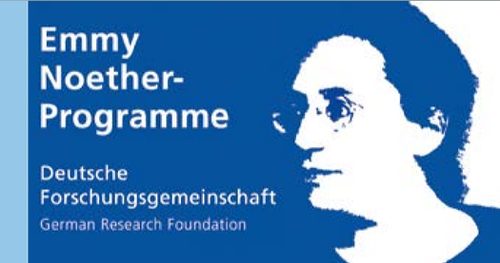The Future in the Stars
European Astroculture and Extraterrestrial Life in the 20th Century
This collaborative research project has come to a successful close, but members continue to work on the history of outer space, spaceflight and astroculture. Accordingly, these pages are updated regularly.
How have European conceptions of the cosmos and extraterrestrial life changed parallel to the continuous exploration of space? Focusing on the cultural imagination and societal impact of outer space and extraterrestrial life in Western Europe, this research project analyzes the ways in which so-called Astrofuturism developed into a key element of western modernity since the establishment of an international space movement in the late 1920s. Has a specifically European perspective on space evolved since the Second World War? How can the paradox of Europe's comprehensive space enthusiasm be reconciled with its decades-long abstinence from space flight? And for what reason did the idea of an imminent future in the stars begin to lose its popular appeal and pervasive cultural influence in the mid-1970s? The project looks at Europe in the light of its preoccupation with the spatial beyond, analyzes connections between 'science' and 'fiction', and applies the so-called 'spatial turn' to the history of outer space.
The project's transdisciplinary and transnational approach is designed to contribute to the development of a field of historical research hitherto largely unexplored in Europe. It aims at historicizing the Space Age with a view to integrating outer space more closely into mainstream cultural historiography. Based on plans of large-scale technological projects and visions of a human future in space propelled by the movement's central protagonists, thematically and methodologically intertwined cases will be explored in order to analyze interdependencies between utopian fictions and West European culture and society. An analysis of historical scientification processes and, in particular, their limits, allows the project to tie in with virulent debates on a genuinely European Histoire du temps présent and, thus, make an original contribution to comprehending our contemporaneous knowledge society.
At present, the research undertaking consists of four distinct, yet complementary projects: Alexander Geppert works on a comprehensive cultural history of outer space and extraterrestrial life in the European imagination of the twentieth century, Jana Bruggmann examines the intellectual and visual reconfiguration of the Earth and its place within space in the early twentieth century, Daniel Brandau studies visions of feasibility and cultural aspects of innovation in German space thought and Tilmann Siebeneichner examines the militarization of outer space in European perspective.
-
Daniel Brandau:
Plausible Future: Rocket Enthusiasm in Germany, 1920-1960 - Tilmann Siebeneichner:
War and Peace in the Third Dimension: Europe and the Militarization of Outer Space in the 1970s
Former Projects:
Emmy Noether Program, Deutsche Forschungsgemeinschaft (German Research Foundation)
The Emmy Noether Program enables outstanding and highly qualified young researchers to become eligible for tenure-track positions at German universities. This program offers an alternative to the traditional professorial track requiring the so-called Habilitation, giving researchers the opportunity to achieve the qualifications required for a university teaching career by directing their own independent junior research group, usually for a period of five years, while assuming an appropriate amount of relevant teaching duties.

